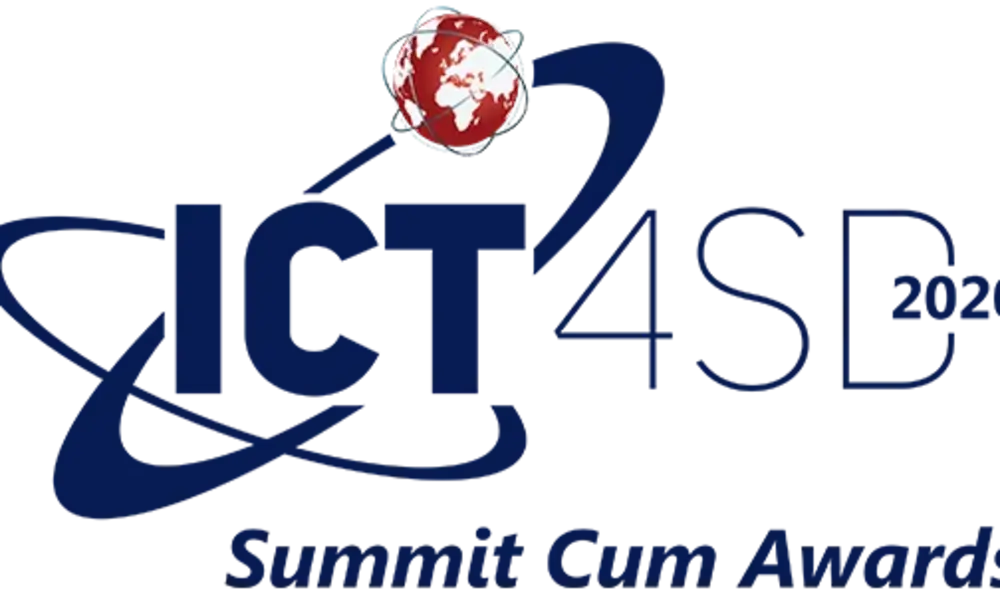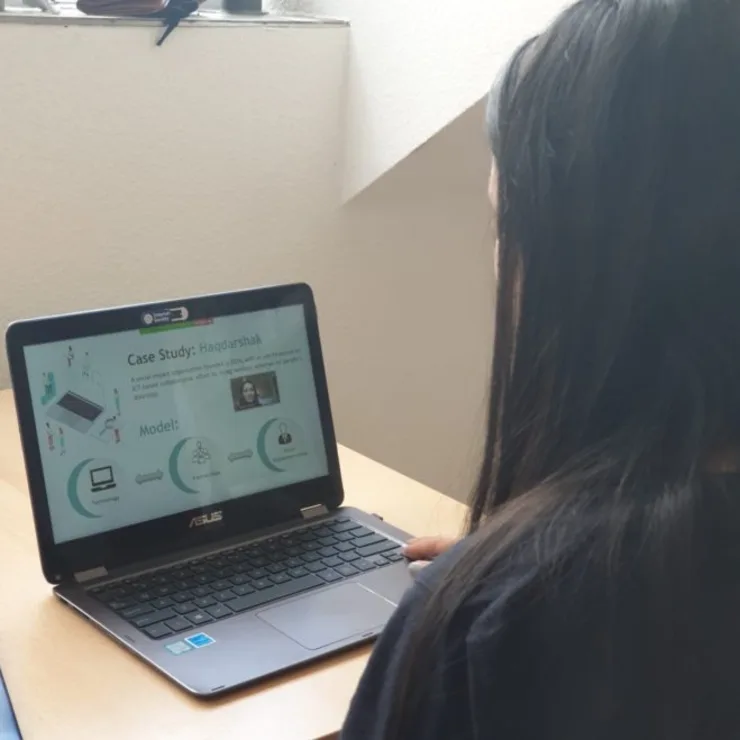International Conference on Information & Communication Technology for Sustainable Development 2020

I had the unique opportunity to participate at the 5th International Conference on Information & Communication Technology for Sustainable Development (ICT4SD), originally planned to take place in Goa, India but instead took place virtually on 23 and 24 July due to the COVID-19 pandemic. At the conference, I presented a research paper I co-authored with Dr. Hasnain Bokhari, a lecturer at the Willy Brandt School of Public Policy, discussing the case study of Haqdarshak, a social enterprise based in Pune, India. Haqdarshak is bridging the digital and information divide in India by making social welfare schemes accessible to its citizens.
Digitalization in India and Social Welfare Schemes
Even though India is one of the most progressive nations in terms of technology, the country faces several challenges in making these digital services accessible to all its citizens because of its enormous size and vast population, constituting 18% of the world’s inhabitants. During the past few years, many government initiatives have started to meet these challenges and pave the way to digitalization. One of the digital revolutions was brought by “Aadhaar”, whose mission is to empower residents by providing all with a biometric identification program, making the access to subsidies, benefits, and services by the government more efficient. Other programs include “Jan Dhan”, which aims to open bank accounts for every Indian citizen over the age of 10 as a way to achieve financial inclusion. Some of these programs have allowed the central and state governments to provide subsidies through cash transfers to ensure citizen-centric services and uplift the marginalized population.
Despite various efforts by the government through social welfare schemes for the empowerment of the poor, a 2019 report by Asian Development Bank found that 10.7% of the employed population in India has a Purchasing Power Parity below the global poverty line of
.90 per day. Even though Digital India has made progress to reduce the digital divide with improved accessibility of internet and telephone services, India is still facing a challenge of information divide and digital disparity.In our paper, we discussed that social welfare schemes are important to bridge inequalities but relying solely on Information and Communication Technologies (ICTs) for development can result in the exclusion of many since the digital literacy rate is almost no existent among 90% of India’s population. The UN’s Sustainable Development Goal 17 provides an opportunity to explore interventions based on collaboration and partnerships to build a more effective strategy in reaching the marginalized population. We further recommended strengthening data protection laws and exploring the concept of open data for greater citizen participation.
Research Experience
The interest and the motivation to co-write the paper in this conference stemmed from the graduate course “Design and implementation of e-Government” taught by Dr. Bokhari at the Brandt School during the Winter Semester 2019-2020. Throughout the course, we discussed an array of topics such as the digital and information divide, digital infrastructure, and open data among others. Dr. Bokhari not only presented theoretical concepts during class, but he also introduced a policy-making toolkit supplemented by various policy instruments.
The course sparked my interest in exploring the role of Public-Private Partnerships in bridging the digital divide and I wrote my term paper on Haqdarshak’s work in India. I am grateful Dr. Bokhari identified the potential in my paper and later invited me to co-author the research paper on the same initiative exploring the idea of ICTs. We co-authored the research paper titled “ICT4D in Channeling Welfare Services in India” which went through a peer review process before getting selected for the publication.
Key Lessons
Co-authoring this research paper and presenting at the international conference virtually was a new experience that taught me several lessons. Considering this was done while the worldwide pandemic was ongoing, I became increasingly dependent on technology to interact with my co-author and discuss our progress on the paper, giving the topic of ICTs and collaboration a deeper meaning. Some of my takeaways are:
- Devoting maximum time in strategizing research design and ideas
- A literature review is the foundation of knowledge on the topic and the mapping of quality research papers is essential
- Using citations not just as an extension but to strongly support the arguments in the research paper
I am highly indebted to Dr. Bokhari for the encouragement and opportunity to collaborate with him. It was an enriching experience as an aspiring first-year MPP student. I am also very thankful to the Brant School for always supporting its students to participate in such conferences and apply classroom learnings to gain practical knowledge.
You can watch the presentations of the ICT4SD 2020 using this link!
~ The views represented in this blog post do not necessarily represent those of the Brandt School. ~
